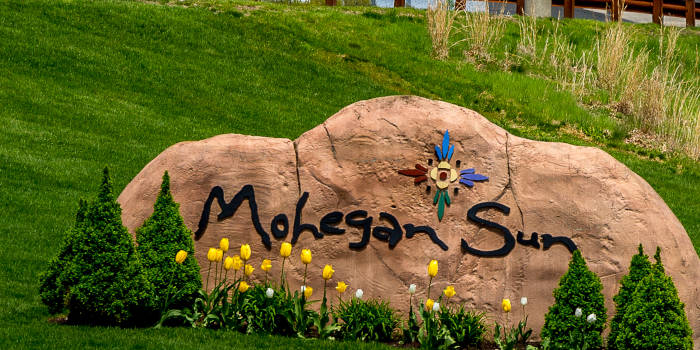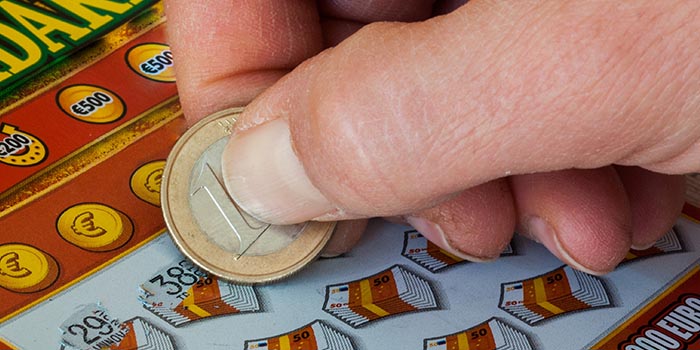- Casino
- By State
- Alabama
- Alaska
- Arizona
- Arkansas
- California
- Colorado
- Connecticut
- Delaware
- Georgia
- Florida
- Hawaii
- Idaho
- Illinois
- Indiana
- Iowa
- Kansas
- Kentucky
- Louisiana
- Maine
- Massachusetts
- Maryland
- Michigan
- Minnesota
- Mississippi
- Missouri
- Montana
- Nebraska
- Nevada
- New Hampshire
- New Jersey
- New Mexico
- New York
- North Carolina
- North Dakota
- Ohio
- Oklahoma
- Oregon
- Pennsylvania
- Rhode Island
- South Carolina
- South Dakota
- Tennessee
- Texas
- Utah
- Vermont
- Virginia
- Washington
- West Virginia
- Wisconsin
- Wyoming
- By State
- Slots
- Poker
- Sports
- Esports
Historical Horse Racing Bill Could “Poison” Gaming Compact

Tribes could oppose a historical horse racing wagering bill that aims to modernize the industry with off-track betting parlors and machines that resemble slots.
Historical Horse Racing Could Help Modernize Industry in Arizona
As Gov. Doug Ducey pushes for legislation that would allow sports betting in Arizona, tribes are very likely to oppose any bill that surrenders their near-monopoly on betting. The legislation, sponsored by Sen. David Gowan, aims to allow off-track betting on historical horse racing. Players would be able to bet on old race replays with machines that are similar to slots. Senate Bill 1794 would modernize the industry, which is suffering a financial loss in the wake of a slow 2020.
According to the lobbyist representing the company operating Arizona Downs racetrack in Prescott Valley, Brian Murray, horse tracks saw a 50% decline, and the amount bet on races a 60% had declined since 2002 when the Indian gaming expansion got approved.
Murray said to the committee on February 23 that the gaming compact had helped the tribes, but it had damaged jobs in the horse racing industry. He hopes that modernization would help fix this issue.
If approved, the new program would legalize betting on fantasy sports, keno, and sporting events at tribal and non-tribal facilities. Lawmakers in the House of Representatives and the Senate have sponsored the legislation.
The bill has some support from the Arizona gaming tribes. A proposed new gaming compact would allow new casinos and offering games that are currently forbidden. However, it has serious opposition from the Native American tribes and other entities, which would impact the gaming compact negotiated between Ducey and the tribes.
The Bill Could Trigger the “Poison Pill”
According to the lobbyist representing the Navajo Nation Gaming Enterprise, Mike Bielecki, the tribes would reevaluate their compact position if the law passes.
The law could trigger the gaming compact poison pill, approved in 2002 by voters. The state receives between 1% and 8% from the tribal gaming revenue, and in return, it limits gambling outside of the tribal facilities. Only pari-mutuel horse racing and lottery are allowed outside of the reservations. If the state allows betting and gambling outside of tribal facilities, the tribes will not be bound to this agreement, and the revenue they’d pay could drop to 0.75%.
Historical Horse Racing Bill Is the Subject of Dispute in the Committee
Before the committee, Sen. Sean Bowie and Bielecki based their opinions on that of Attorney General Mark Brnovich from 2018, according to whom the bill would trigger the “poison pill.” Gowan said that he would like to investigate more and stated that the court never ruled on it.
According to a pro-bill coalition, Save Arizona Horse Racing, the old horse racing wagering won’t violate the gaming compact. The group’s spokeswoman Lorna Romero stated that it would expand the already existing pari-mutuel betting system, legalized before the gaming compact. She said that the industry wants old horse racing legalized because it would help revive it.
Sports betting in Arizona is on the rise as Ducey’s bill advances in the Senate Committee. If it passes, it will allow tribal operators to build an unlimited number of casinos.
Sen. T.J. Shope also said that he doesn’t see how historical horse racing would get past the issue with the poison pill raised by Brnovich. He also sees it as a delay to the gaming bill that he is running.
Eva is a PR specialist and communications expert with ten years of experience in campaign organizing and creative writing. She is also a published author of fictional stories. Eva recently developed an interest in economics and the gaming industry after discovering the inspirational story of Molly Bloom.
Must Read
Legal
July 7, 2025
Former SkyCity Executives Sued Over AUSTRAC Penalty
More Articles






Casino
July 11, 2025
IGT Reveals Multiple Jackpots Throughout June

Sports
July 11, 2025
DraftKings to Give Back Over $3M to Connecticut Users

Casino
July 11, 2025
Caesars Introduces Digital Wallet in Nevada

Sports
July 10, 2025
NJ Bans Sportsbook Deals With Public Colleges

Casino
July 10, 2025
Mohegan Sun Guest Wins $2M Gambling in Spanish 21










